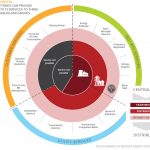Renewable Energy Stocks By Dollars Per Watt
Tom Konrad CFA Disclosure: I and my clients own HASI and BEP. I have short call positions in NYLD and PEGI, and short put positions in PEGI. Dollars per watt ($/W) is a lousy measure of the economics of solar, but it persists. Most likely, it persists because it seems familiar. We can pay $4 for a watt of solar, or $4 for a Iced Hazelnut Macchiato at Starbucks. Unfortunately, while the analogy may seem apt, this is a lot like knowing you’re getting a Macchiato without knowing if it’s a Tall, Grande, or Venti. The actual energy production from a...
Stock Picking For Green Investors (Presentation)
Here is a short presentation on stock picking for green investors by AltEnergyStocks Editor Tom Konrad CFA, Ph.D., with a couple stock picks. I gave this presentation as part of a workshop on divestment from fossil fuels and investment in green stocks at the third annual Climate Solutions Summit. The Divestment part is here.
The Brookfield Renewable Energy Corporation Premium
By Tom Konrad, Ph.D., CFA
On Friday February 2nd, Brookfield Renewable (BEP and BEPC) reported earnings. Judging by the immediate stock market reaction, many investors did not like the results. Quarterly earnings actually beat expectations, but for Yieldcos like Brookfield, cash flow numbers and revenue (which can be more indicative of the company’s ability to pay and raise dividends) can be more important. These fell short.
The company attributes the cash flow shortfall to its own clients delaying payments at the end of December, in order to make their own financial statements look better, and it expects the shortfall to reverse...
Solar & Storage Finance Conference Notes
I attended the Solar & Storage Finance conference hosted in NYC in late October 2018. Presenters included a mix of capital providers & asset managers, private non-profit entities & public agencies, legal, accounting & consulting firms, intermediaries, firms providing risk analysis, ratings & mitigation, & various vendors of energy storage and IT-related services. The tone of the discussions was noteworthy for its near total absence of ideological comments about environmental urgency. Rather, it was a meeting of finance technicians and technocrats focused on the nuts & bolts of accomplishing those ends, with the merits and relevance of mission assumed.
The...
Six Questions to Ask a Venture Capitalist in the First Five Minutes
David Gold So, you’re at a networking event and you get an opportunity to talk with a Venture Capitalist (VC) for just a few minutes. After breaking the ice with quick introductory formalities, you present your elevator pitch, right? Wrong. How can you possibly capture that VC’s interest if you don’t know what excites them? Would you try to sell meat to a vegetarian or bricks to a carpenter? Not if you knew a little about their needs and interests! When you are raising money, you are selling yourself and your company to your prospective...
Graftech: On Graphite Coattails
by Debra Fiakas CFA Graftech makes graphite products like this crucible for traditional industries, and is expanding its products for alternative energy industries. Photo by Vladnov Graftech International Ltd. (GTI: NYSE) has been in business over a hundred years, supplying graphite materials and products to the steel industry and other manufacturers. Most investors would put Graftech on a list of ‘dirty’ companies, not with alternative energy leaders. However, with technological innovation Graftech has found new customers for its graphite materials. Fuel cell components, wind turbine...
Transmission – The Bottleneck We All Saw Coming
by Paula Mints
Transmission and distribution is the process of getting electricity from the point of generation to the point of use. Unfortunately, upgrades, maintenance, and the need to extend the electricity infrastructure from point a to point b are often ignored. Also ignored are infrastructure designs that support a distributed grid with renewable energy sources of electricity.
Transmission bottlenecks are the utterly foreseeable consequence of accelerated solar and
wind deployment. As countries worldwide were announcing RE goals, holding auctions, and providing incentives, system operators everywhere were warning about the need to add new and upgrade existing infrastructure while also warning about...
The Truth Ain’t That Incovinient Anymore, So What’s Next?
I attended Al Gore's An Inconvenient Truth lecture in Toronto tonight. I assume many of you have seen the movie so I'm not going to go into the details of the presentation, which is essentially the same as the movie give-or-take a couple of slides. Instead, I'm going to share with you some of the thoughts I had as I was listening to the former VP. Firstly, I bought this whole climate change thing a long time ago and I've seen the movie, so substantively I got very little out of this. As with the movie, I...
Investing For The Anthropocene
by Garvin Jabusch Jack Bogle is flat wrong. I mean, within his worldview and that of Modern Portfolio Theory, he’s right, but in the Anthropocene, he’s wrong. Bogle, founder and retired CEO of the Vanguard Group, is known for championing the superiority of low-fee index funds. His firm’s largest product, the $155 billion Vanguard 500 Index Fund is the perfect poster child for his philosophy. It closely tracks the S&P 500 Index of America’s largest companies, and it has a fee of only 0.06% inclusive. The S&P 500 has performed better than most actively managed portfolios over time, so...
List of Green Investment Advisors
If you want your money to help with the transition to the clean energy economy, most investment advisors will probably try to accommodate by finding a few green mutual funds for you.
There are now hundreds of mutual funds and ETFs that brand themselves as green, but many will not meet your definition of what is "green." This could mean not being completely divested from fossil fuels, investing in nuclear power, or owning too much of non-fossil fuel stocks like Apple (AAPL) and Facebook (FB) and not enough green-focused companies like Tesla (TSLA).
An investment advisor who does not consider values...
Stocks We Love to Hate
Investing in clean energy is both an economic and a moral decision. From an economic perspective, I believe that constrained supplies of fossil fuels (not just Peak Oil, but also Peak Coal and Natural Gas) are leading to a permanent rise in the value of all forms of energy. From a moral perspective, I know that we and the vast majority of our children are limited to this one planet for generations to come, so we should abuse it as little as possible, so, of all the possible forms of energy to invest in, clean energy (Renewable and...
Crowdfunding and Clean Energy
by Beth Kelly The digital era has enabled an “entrepreneurial explosion”, equipping ordinary people with the tools to invest in a myriad of early stage companies. Rather than investing millions of venture capital at once, interested individuals can use online platforms like Indiegogo and Kickstarter to invest smaller sums in projects they feel passionate about. Crowdfunding holds vast potential in the renewable energy sector in particular, opening up a world of opportunity for both investors and “green” project developers. Now that renewable energy technology is becoming viable and cost-effective, firms in the industry are turning to crowdsourcing...
Forbes Is “Betting On Green Stocks”
Just a heads up that Forbes is running, on its website, a short slide show entitled "Betting On Green Stocks". The magazine "queried some of the top-performing investment newsletter editors who cover green stocks for a few of their favorite current ideas." Stocks discussed are: First Solar , SunPower , Medis Technologies , Suntech Power Holdings , and Fording Canadian Coal Trust .
The Obama Effect: Is Clean Energy Outperforming?
A comparison of the charts for clean energy ETFs and broader market ETFs seems to show that, clean energy funds have, if anything, underperformed the market as a whole in recent months. Nevertheless, the quarterly performance update for my 10 Clean Energy Stocks for 2009 showed my picks strongly outperforming the market, although the much riskier 10 Clean Energy Gambles was only performing in-line with the sector indices. It's unlikely that my picks are due to stock picking skill. My personal experience has shown that I'm much better at picking sectors than individual stocks: my strength is in spotting...
How Likely Is A Big Rally For Alt Energy Stocks?
Last week, Jefferies & Co. held its Global Clean Technology Conference. Unsurprisingly, the tone wasn't as optimistic as in previous years, with cash and funding worries top of mind. Nearly two months ago, I discussed some tangible signs pointing to looming problems in the industry. However, despite all the gloom, it seems as though several firms (and investors!) are expecting the American Reinvestment and Recovery Act (ARRA) to provide the industry with a lifeline. But will this really be the case? For one thing, the major environmental spending programs in the ARRA are relatively...
Keynes Meets Carson, And How You Can Invest It (Part 1)
I'm not sure whether John Maynard Keynes, the father of Keynesian economics and an ardent proponent of government interventionism during hard economic times, and Rachel Carson, the mother of modern environmentalism and the author whose work is credited for the eventual creation of the EPA, ever met during their lifetimes. But if current voter sentiment holds until November 4, their ideas could soon converge and form the basis of government policy for at least the next four years. Let me explain. First, John Maynard Keynes. There is no doubt that the deliberate and coordinated nationalization of financial services...







